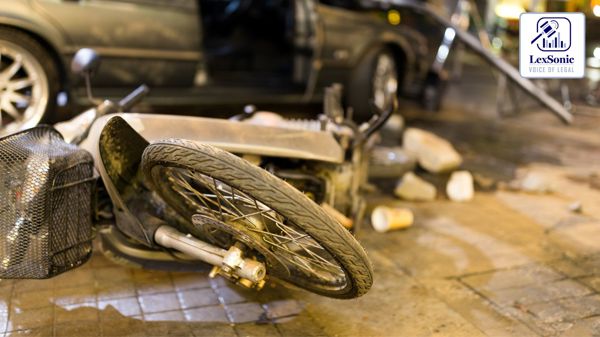Overview of the Appeal Against the Motor Accident Claims Tribunal Award.
21 August 2024
FIR >> Criminal Law | Motor Accident >> Family Law
In a recent case of Manpreet Singh v/s Ayodhya Prasad Yadav & Another, the appeal concerns a decision rendered by the Motor Accident Claims Tribunal in case no. 935/14, filed by the respondent No. 1 (appellant) challenging the award and judgment dated 19th September 2014. This award had been passed by the learned Presiding Officer (P.O.) of the Motor Accident Claims Tribunal, South East District/Saket Courts, New Delhi.
Case Summary:
Incident Details: On 29th January 2010, at approximately 9:40 PM, an accident occurred on the Lala Lajpat Marg flyover in Defence Colony, New Delhi. The appellant, driving an LML scooter with registration number HR 51D 0539, allegedly struck a motorcycle (Hero Honda, DL 35AH 5042) driven by respondent No. 1. The collision reportedly caused respondent No. 1 to fall and sustain severe injuries. Immediate medical attention was sought at Batra Hospital.
Legal Proceedings: An FIR (No. 13/2010) was filed under Sections 279 and 337 of the Indian Penal Code (IPC) at PS Hazrat Nizamuddin. The investigation led to the seizure of both vehicles involved and the arrest of the appellant. The appellant was found to be without a valid driving license or insurance, resulting in additional charges under various sections of the Motor Vehicles Act, 1988. Subsequently, the appellant was charged with causing grievous hurt under Section 338 of the IPC.

Claim Petition: Respondent No. 1 filed a claim petition under Sections 166 and 140 of the Motor Vehicles Act, 1988. The Tribunal, after evaluating the evidence, awarded a compensation of Rs. 2,91,773 along with 9% interest from the date of filing the petition until realization. The Tribunal held the appellant and respondent No. 2 jointly and severally liable for the compensation.
Appellant's Arguments:
The appellant contends that he was merely a passer-by and not the driver of the offending vehicle. Key points raised include:
- Lack of Evidence: The appellant argues that there is no concrete evidence proving he was driving the LML scooter.
- False Implication: The appellant claims to have been wrongly implicated in the case and argues that no eyewitnesses support the claim of his involvement.
- Delayed Investigation: It was asserted that the appellant was summoned for investigation three months post-incident, raising doubts about the investigation's integrity.
- Inconsistent Testimonies: The appellant criticizes the Tribunal for rejecting the defense testimonies which he believes support his claim of being a mere passer-by.
Respondents' Counterarguments:
Respondent No. 1's counsel argued:
- Negligence Established: The appellant's rash and negligent driving was substantiated through police investigation, resulting in the charges under Sections 279 and 338 of the IPC.
- No False Implication: The defense failed to prove that the appellant was falsely implicated. The testimony of respondent No. 1 was supported by the police investigation findings.
- Hospital Records: It was noted that appellant's injuries were documented, which contradicts his claim of merely being a passer-by.
Tribunal's Findings:
The Tribunal's decision was based on several key findings:
- Evidence Corroboration: Respondent No. 1's account of the accident was supported by police investigation, which also found the appellant driving recklessly.
- Witness Testimonies: The testimonies of the appellant's witnesses were found inconsistent and unclear. The Tribunal noted that the appellant's claim of being a passer-by who suffered minor injuries lacked credibility.
- Legal Precedents: The Tribunal relied on judgments indicating that the evidence standard in Motor Accident Claims Tribunal cases is based on the preponderance of probabilities rather than beyond reasonable doubt.
Judgment:
The court reaffirmed the Tribunal's award, highlighting that the appellant failed to substantiate his claim of being a mere passer-by. The decision was in alignment with established legal principles that require a liberal approach in accident claims for the benefit of injured parties. The appeal was dismissed, and the compensation award of Rs. 2,91,773, along with 9% interest, was upheld.
Conclusion:
The court's ruling emphasizes the principle of preponderance of probabilities in motor vehicle claims and the need for clear evidence to contest such claims effectively. The appellant's failure to prove his innocence and the corroborative evidence from the police investigation were pivotal in upholding the Tribunal's decision. This summary reflects the judicial process and outcome regarding the appeal, highlighting the importance of evidence and procedural adherence in motor vehicle accident claims.
Motor Vehicles Act, 1988 Indian Penal Code, 1860
